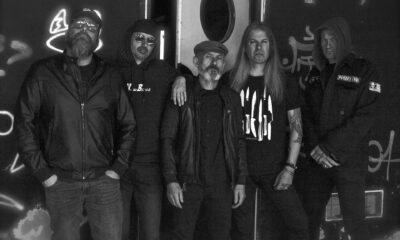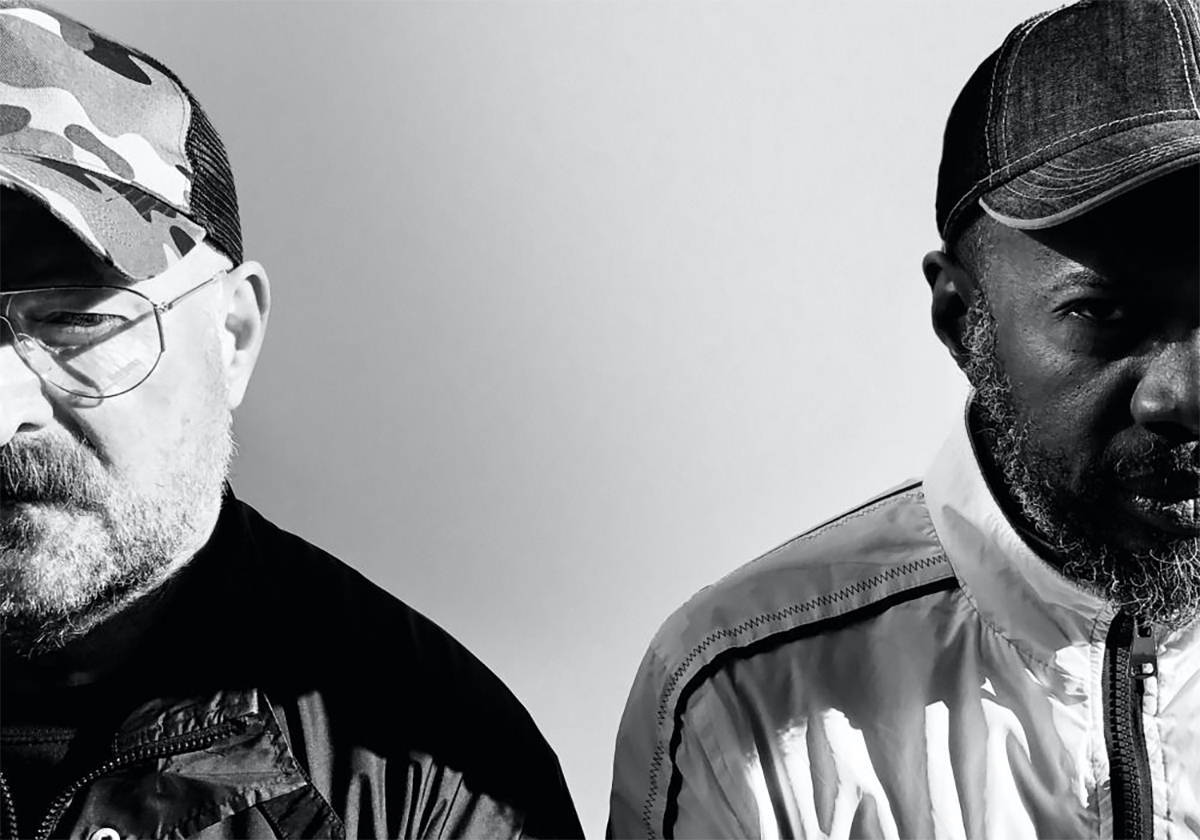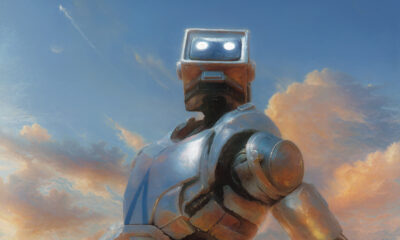Alternative/Rock
Zack de la Rocha: “Musical & Political Leader”
Zack de la Rocha is an extremely talented and influential individual best known for his musical masterpieces created while still with his former band, Rage Against the Machine. The name of the band alone is, in some senses, a summation of Zack’s true character: a wildly rebellious man whose primary goal is to simultaneously push others to think for themselves and encourage social and political reform.

Zack de la Rocha is an extremely talented and influential individual best known for his musical masterpieces created while still with his former band, Rage Against the Machine. The name of the band alone is, in some senses, a summation of Zack’s true character: a wildly rebellious man whose primary goal is to simultaneously push others to think for themselves and encourage social and political reform. The life of this inspiring musician began on the 12th of January 1970 in Long Beach, California. Zack was born into an educated and similarly defiant Latino family.
At the time of Zack’s birth, his father Beto was a Chicano muralist. The term “Chicano” is typically given to someone of Mexican decent born in the United States. Beto had membership in the renowned political art group, Los Four; a group who made their presence felt through the use of vibrantly coloured paintings, street paintings, and graffiti. While Beto was the family’s predominant artist, Zack’s mother, Olivia, was more of a scholar, as she had earned a Ph. D in Anthropology from the University of California. Sadly, soon after Zack’s birth, when he was one year old, Zack’s parents separated. He was forced to live with his mother in Irvine California and only saw his father on the weekends. This separation would ultimately mark the beginning of a rather difficult upbringing for Zack. At a first glance, based on Zack’s early childhood, it is easy to see that his major political, artistic, and rebellious influences mostly derived from his parents.
In 1983, roughly thirteen years after Zack’s parents separated, Zack’s father endured a nervous breakdown. This was primarily due to the fact that Beto was an extremely religious person and challenged himself to apply the Bible’s teaching to every facet of his existence. These extreme religious principles forced Beto over the edge causing him to radically alter his life. Most importantly, he ceased painting and actually began destroying his work. These trying times for Beto soon came to greatly affect Zack’s life as well. During his regular weekend visits with his father, Zack was forced to sit in a locked room with the curtains drawn. Not permitted to eat anything, Zack usually went the entire weekend without any nourishment. The only thing that Zack really did during his visits with Beto was aid him in destroying his paintings. Ironically, the very paintings that Zack was being forced to ruin represented a major part of his own identity. This rash and improper treatment from his father coerced Zack to permanently live with his mother in Irvine.
The incident with Zack’s father, coupled with his metaphorical loss of self, resulted in Zack simultaneously enduring a culture shock and an identity crisis and of his own. His family was falling apart and, having been alienated from his Chicano community and pushed to live in a predominantly Caucasian suburb such as Irvine, he felt literally out of place everywhere that he went. It was approximately at this troubled point in Zack’s life that he discovered music as a gateway for his emotions. Zack played guitar and, during high school, he became engrossed in music – namely the punk and hardcore rock scenes. Soon thereafter, he joined a straightedge band called Hardstance in which he sang and played guitar. As Zack’s musical tastes began to evolve, so did his musical influences. A fondness of more mainstream music groups such as Bad Religion and The Sex Pistols laid way to the discovery of bands like Bad Brains, Minor Threat, and Teen Idols and the subsequent formation of his own band, Inside Out. His band slowly gained a rather large following in California and this became one of Zack’s first successful musical endeavours. The band was signed to Revelation Records and, in 1991 released an album entitled No Spiritual Surrender and performed a small tour. Zack was slowly starting to find himself and his band had proven to be an excellent starting point. As Zack put it; “Inside Out was the first band I ever fronted. I channelled all my pain through that band. It was about completely detaching ourselves from society to see ourselves…as spirits, and not bowing down to a system that sees you as just another pebble on a beach.” Little did Zack know how far he would come in a matter of just a couple of years.
Growing up in Irvine, Zack was generally surrounded by fairly affluent Caucasian kids. Despite the fact that he himself was economically sound, he none the less could not help but feel that his Chicano heritage was further alienating him. Already largely interested in music, Zack’s tastes took a slight turn as, through his ‘racial alienation’ he started to better relate to hip-hop culture. He closely followed hip-hop acts such as KRS-One, Public Enemy, and Run DMC. Soon thereafter, Zack’s band Inside Out was to break apart; leaving him free to further explore his newfound interest in hip-hop. As Zack embraced this new culture, he began rapping and free styling in various clubs local to his area. It was roughly during this phase of his life that Zack would have a turn for the better. He met Tom Morello and Brad Wilk, and shortly after adding Zack’s friend Tim Commerford to the roster, the four friends formed Rage Against The Machine.
Rage Against The Machine did not have to wait long for success to find them. Their sound was that of a ground-breaking combination of heavy rock, and hip hop, with some jazz and punk elements. They were immediately recognized to be an extremely talented and promising group and were signed to a contract with Sony Music Entertainment Inc.. In 1992, a very short time after the band originally formed; they had already pressed and released their first self-titled album. The disc included ten super-charged songs that would soon become the anthems for rebellion and political statements everywhere. Zack’s heart and soul poured out on this first album, resulting in a slew of extremely political, controversial, and inspiring music. What is most surprising about Rage’s success is the fact that they were indeed a radically political band. Generally speaking, labels chose not to sign artists whose opinions could conceivably affect the image of the company. This did not stop Rage however, and they pushed onwards releasing another three albums while under contract with Sony Music.
It did not take long for Rage to be headlining around the world at most major rock concert venues. They were the most politically charged band ever to receive as much airtime as they did on MTV and the radio and played countless benefit concerts as well as shows at various political rallies such as the Democratic National Convention. By broadcasting over popular media, Rage ignited a new consciousness in many minds. Zack had no other goal than to make a difference in this world: “We’re not going to play to the mainstream. We’re going to hijack it.” Zack is extremely well known for his support and action concerning numerous political events that took place over the past decade. For example, not only did Zack defend many causes through his lyrics, but he also fought for causes such as that of Leonard Peltier, Mumia Abu-Jamal, and the Zapatista movement in Mexico. Interestingly, with regard to Zack’s efforts to aid Mumia, he even went as far as testifying against the US and their unfair treatment of Mumia on the floor of the United Nations. Zack’s lust for political change became so increasingly interwoven with his musical career that he eventually began to measure his success as a musician based on the amount of social and political reform that he had incited.
Sadly, despite Rage’s incredible success (which had not even come close to slowing), after nine years and three albums, the band broke up in the fall of 2000. Zack felt that the group’s decision-making process had unravelled and they could no longer efficiently work together as a unit; therefore undermining their artistic and political principles. After Rage’s amicable break-up, rumours started to spread of Zack’s first solo album. Unfortunately, more than four years have elapsed and we still have no news of any such album. In any case, Zack has been anything but stagnant with his work, and has since worked with musical talents such as the Roots’, ?uestlove, the Gorillaz’s Dan the Automator and Cypress Hill’s DJ Muggs. Zack also collaborated with DJ Shadow and in 2003 released a song entitled March of Death in protest of President Bush’s war on Iraq. There is now a rumour that Zack is back in the recording studio working on his solo project with the aid of Nine Inch Nail’s frontman Trent Reznor. We can only hope that something is to soon come of this musical combination.
Zack’s life has certainly been a hectic ride. He came from a small Latino family stricken with relationship problems and endured much anguish throughout the course of his early life. Yet despite it all, Zack has persevered and is now one of the most recognized political activists in the music world. His political efforts are tireless and he continues today to ‘rage against the machine’. Through his magnificently orchestrated work he seems to perfect all that he touches. He is an inspiration to not only musicians everywhere, but also to anyone who has a voice and wants to be heard. It will be a major tragedy if Zack (as influential as he is), does not continue to create the extraordinary sounds which invigorate and ignite the political passions of countless people around the world.
Check out the song: “We Want It All”
-

 Music6 days ago
Music6 days agoTake That (w/ Olly Murs) Kick Off Four-Night Leeds Stint with Hit-Laden Spectacular [Photos]
-

 Alternative/Rock7 days ago
Alternative/Rock7 days agoThe V13 Fix #010 w/ High on Fire, NOFX, My Dying Bride and more
-

 Alternative/Rock2 weeks ago
Alternative/Rock2 weeks agoA Rejuvenated Dream State are ‘Still Dreaming’ as They Bounce Into Manchester YES [Photos]
-

 Features5 days ago
Features5 days agoTour Diary: Gen & The Degenerates Party Their Way Across America
-

 Culture1 week ago
Culture1 week agoDan Carter & George Miller Chat Foodinati Live, Heavy Metal Charities and Pre-Gig Meals
-

 Music1 week ago
Music1 week agoReclusive Producer Stumbleine Premieres Beat-Driven New Single “Cinderhaze”
-

 Alternative/Rock1 week ago
Alternative/Rock1 week agoThree Lefts and a Right Premiere Their Guitar-Driven Single “Lovulator”
-

 Alternative/Rock2 weeks ago
Alternative/Rock2 weeks agoDeath Wishlist Are Fiery and Fierce with Their “I Get Bored” Video Premiere















